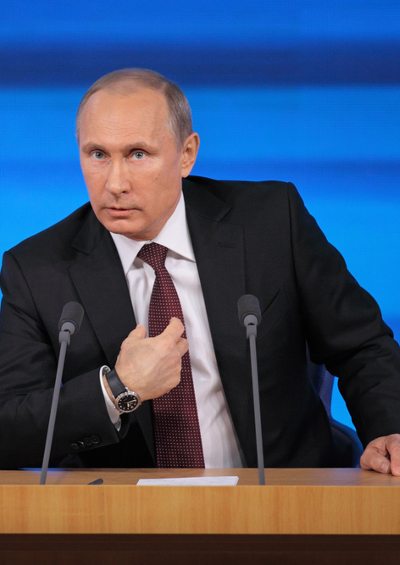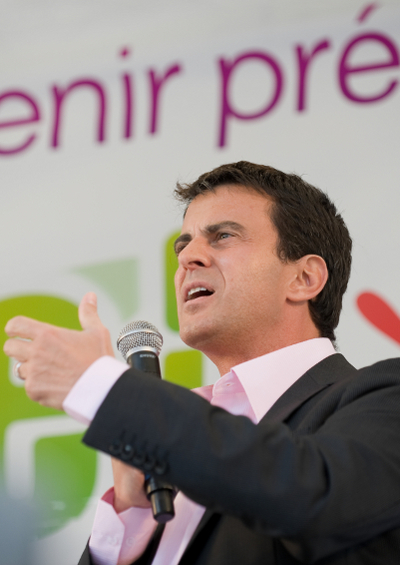How Far Will Putin Go?
A rebounding Ukraine provides Putin with tougher choices.
July 8, 2014

For the last several months, the threat that Russia may openly invade Ukraine has been the biggest risk to a positive outlook for the European economy.
So far the risk has not materialized. But following Ukraine’s first military success against the pro-Russian irregulars who are holding parts of Eastern Ukraine, the issue may come to a head soon.
The big picture
Russian president Putin suffered a serious strategic defeat early this year. Trying to entice or coerce Ukraine away from the European Union, he ended up losing Kiev for good.
After the deadly shots fired in February at Maidan square, after annexing Crimea at gunpoint in the most blatant breach of international law in Europe in more than 60 years and after fomenting bloody unrest in Donbas, it looks highly unlikely that Kiev will ever voluntarily return to the Russian orbit.
For a Russia that considers Kiev the cradle of its magnificent civilization, that is a huge strategic loss. As a consolation price, Putin has snatched Crimea, boosting his domestic popularity for a while in the process.
What would a rational Putin do?
Nobody knows what Putin really wants — nor does he seem to have a genuine master plan. But we can ponder what a rational Putin would do. Four months ago, I suggested that a rational Putin would:
■ foment unrest in Eastern Ukraine as a bargaining chip,
■ try to weaken the new Ukraine to such an extent that urban Russians would not consider Maidan-style protests against an unpopular autocrat as an example worth copying on Red Square,
■ and shy away from an open invasion which could elicit a Western response with sanctions that could cripple Russia’s fragile petro-economy.
So far, that scenario has largely played out. Three things have now changed:
■ Russia’s covert incursions into Eastern Ukraine, while apparently welcomed by some parts of the local population, have not sparked a genuine popular revolt in the region against Kiev.
■ Ukraine’s armed forces, initially very demoralized after the ousting of Yanukovich, seem to be shaping up.
■ The Western response to Russia has become more coherent, with a clear and credible threat to escalate sanctions whenever Russia intervenes more openly.
Tough choices
As a result, Putin now faces a tough choice. He could step up his support for the pro-Russian insurgents who are now on the defensive. If he does not he may be seen as letting Ukraine advance on the ground in Donbas.
The former could trigger more serious sanctions on and further capital flight from Russia. The latter could hurt his popularity and his “strong man” image in Russia. That image whipped up nationalist sentiment in his favor in the last five months.
The situation on the ground looks awkward. A few thousand pro-Russian irregulars are de facto holding some 2.5 million people hostage in the metropolitan areas of Donetsk and Luhansk. It could be very difficult for Ukraine to re-establish control without significant civilian damage.
A drawn-out “siege” of these major cities could play into the hands of Russian propaganda. Ukraine will have to balance the risks of letting insurgents disrupt life unchallenged in major Ukrainian cities against the risk of an even more bloody conflict.
Backing down and shoring up
Ukraine’s best option may be securing the border with Russia. From there Ukraine could let the West calibrate sanctions based on Russia’s cooperation with tighter border controls against a flow of Russian weapons into Ukraine.
The best guess remains that Putin will not choose to invade Ukraine openly. Russian tanks rolling west across the plains of Ukraine could send European business and consumer confidence into a tailspin. But such an invasion would also elicit tough sanctions that could cripple the Russian economy.
While Putin could easily prevail on the ground, Russia would have to pay a very high economic price for that. After Crimea, Putin is probably popular enough at home to back down somewhat on Donbas.
He could ultimately present a deal that creates more regional or local autonomy within Ukraine. He could also demand guarantees for Russian language rights in Eastern Ukraine and call it a “success.”
The impact: modest and limited so far
So far, Russian meddling in Ukraine has had only a limited impact on Western European economies. Germany’s export-oriented industry is taking a hit from uncertainty and lower exports to Russia. Most other Eurozone countries are less exposed. Fortunately, Germany is strong enough to stomach that easily.
Takeaways
Putin could roll over Ukraine, but at a great cost to his own nation.
Russian efforts to keep Ukraine out of the EU’s grasp may have backfired.
Kiev, the cradle of Russian civilization, may never want to rejoin with an aggressive Russia.
Putin’s meddling in Ukraine might hurt him far more than it hurts Western Europe.
How will Ukraine and Russia face the tough choices in front of them?
Read previous

Message to France: “Reform or Drop Dead”
July 7, 2014
